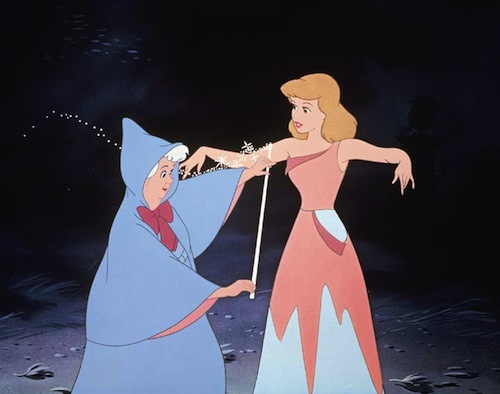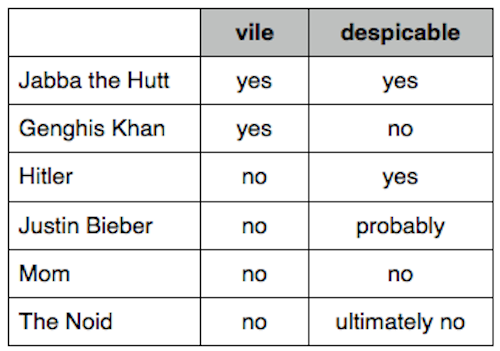Tuesday was another brisk trading day for the marketplace of ideas. After Rep. Debbie Wasserman Schultz (D–FL) criticized his support for a bill that would cut Medicare spending, Rep. Allen West (R–FL) issued an email to her and several House leaders that read, in part:
You are the most vile, unprofessional and despicable member of the U.S. House of Representatives. If you have something to say to me, stop being a coward and say it to my face, otherwise, shut the heck up. Focus on your own congressional district!
That’s like paragraph two. West’s last imperative is kind of odd, given that A) he lives in Wasserman Schultz’s district and B) the function of the House of Representatives is presumably not for everyone to shut up and focus on his own district. West was angry when he wrote that, perhaps because Wasserman Schultz had just delivered the following remarks from the House floor:
The gentleman from Florida, who represents thousands of Medicare beneficiaries, as do I, is supportive of this plan that would increase costs for Medicare beneficiaries—unbelievable from a member from South Florida.
In Florida, they call that the age card. It’s dirty rhetoric for sure, but there remains a substantial gap in tone between Wasserman Schultz’s remarks, addressed to the gentleman from Florida, and West’s response, which begins with Look, Debbie… There’s also that part about vile and despicable; those are probably not terms we should use to debate one another. They are catchy, though, right?
For a man who clearly emailed in haste, West seems to have logged a little thesaurus time to get to “vile and despicable.” If you don’t believe that’s a well-turned phrase, consider its prominence in stories about the exchange versus the terms “wasserman schultz west.” It seems likely that West selected those words for evocative power more than descriptive accuracy. The difference between “vile” and “despicable” lies primarily in the experiences of revulsion versus contempt. That which is vile is gross, whereas that which is despicable is immoral or undignified. I produced this chart to clarify:
By these standards, I think we can say that Debbie Wasserman Schultz is neither vile nor despicable, even if she was a dick to Allen West in the House of Representatives. West’s phrase turns not on the sharpness of his critique but the soundness of his meter. Like certain magical bling incantations, “despicable Wasserman Schultz” runs two straight dactyls and a stopped foot. It’s a canter down Vehemence Lane, and all it needs is a short, sharp word to keep it from running away.
As any AP Comp teacher will tell you, the best way to balance a long, fancy phrase is with an abrupt one. The vile in vile and despicable is like the handle of a fencing foil: heavy and short to anchor long and light. Its single syllable provides a nice Teutonic contrast to the Latin alternation of despicable, too. English words mostly come from two language groups: the Latinate, brought to you by Rome, and the Teutonic, brought to you by people who smelled too bad to get into Rome. Formal-sounding words like “execute” and “defecate” invariably come from Latin, whereas party words like “kill” and “poop” come from German barbarians. In this case, it sounds like vile and despicable are brought to you by the people who perfected each, but it’s a trap. It turns out vile is from Latin, too, which is why you should look up the origins of words even after you’ve written the paragraph.
The point is that from a metric/euphonic standpoint vile and despicable goes just perfect. Unfortunately, words are also still widely viewed as vehicles for meaning, and the pretty phrase vile and despicable says some not pretty things. Fact: Debbie Wasserman Schultz sent protestors to Allen West’s office after he published an Op-Ed in a biker magazine she called degrading to women. Fact: the last sentence of West’s email reads, “You have proven repeatedly that you are not a Lady, therefore, shall not be afforded due respect from me!” Fact: the secondary definition of vile is “morally bad; wicked” as in vile harlot.
Is it possible that West—a Tea Party conservative whose campaign Issues page does not mention issues of gender or religion—is attacking Wasserman Schultz for being a strong, unhyphenated woman? You wouldn’t think so were it not for the word Lady, sticking up capitalized like the word Husband has got to be around here somewhere. In contemporary American English, lady is one of those respectful terms that does not convey much respect. Finish your peas, young lady is a far more common usage than Lady, I’m sorry I ran over your cat. The word for that is condescending and, as the man says, therefore shall not be afforded due respect from me. Exclamation point optional.






Love the chart
Justin Bieber IS vile, Dan. Have you looked at his hair–either incarnation?
Otherwise, I concur, wholly.
Look, Debbie…